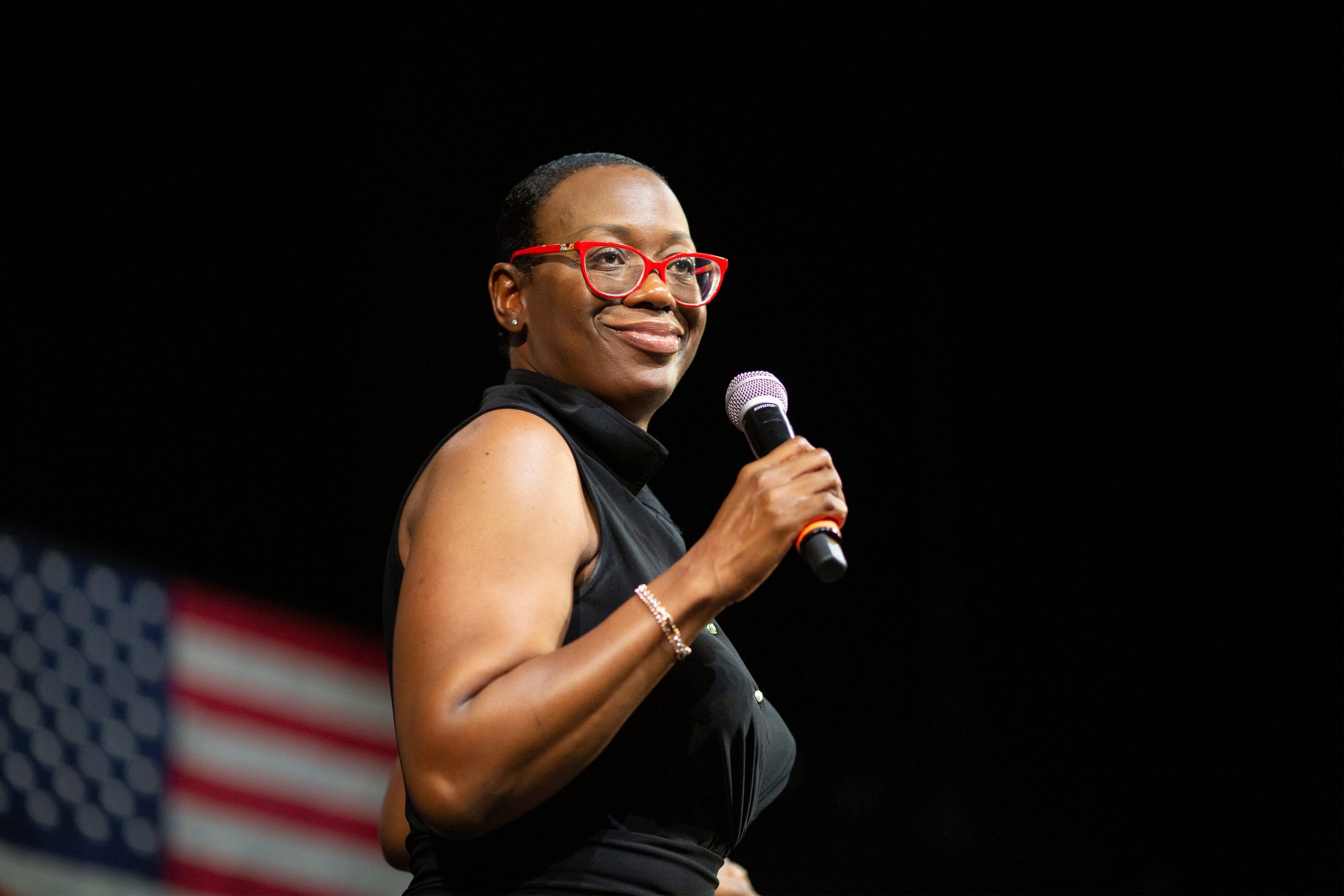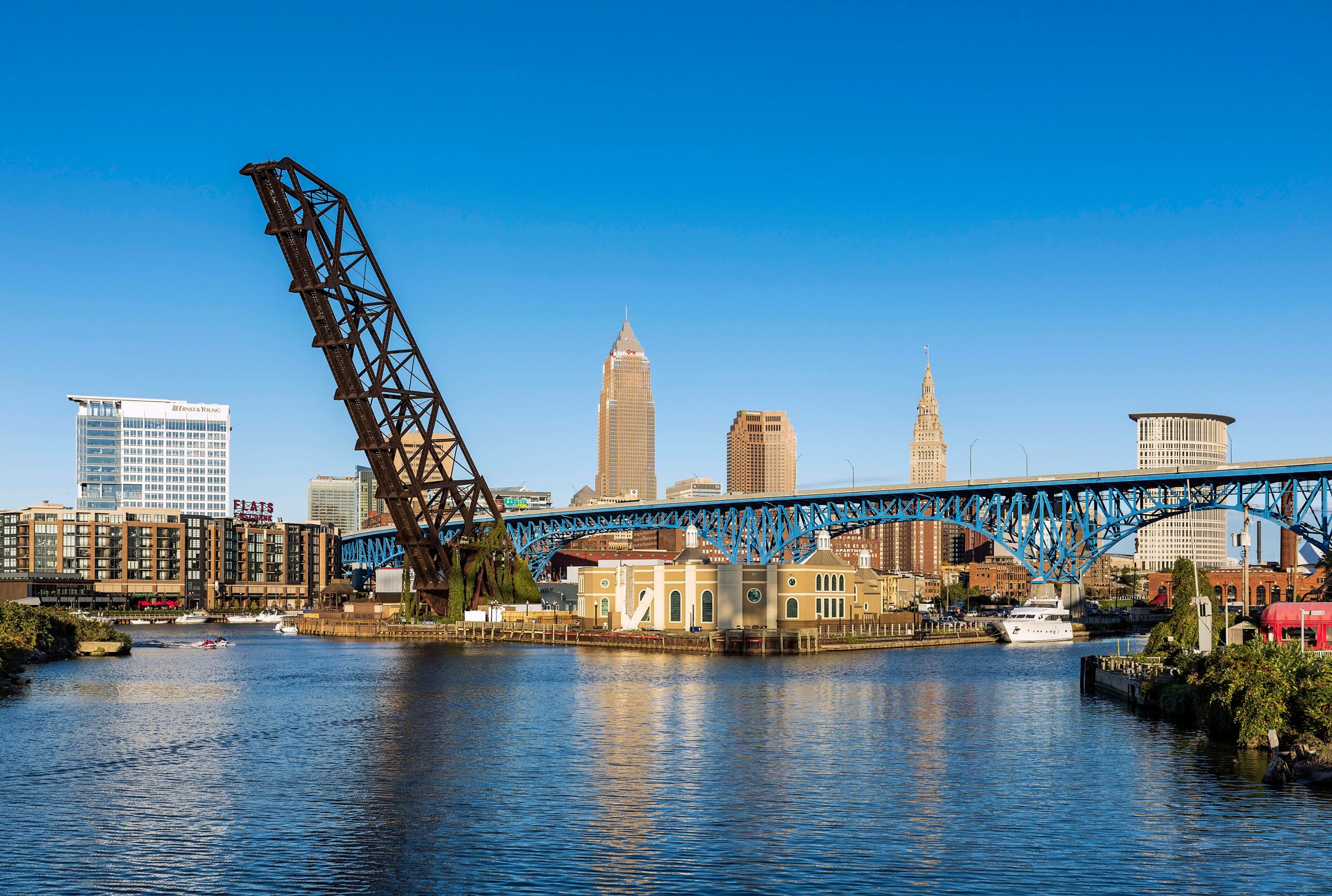
David McNew/Getty Images
- Nina Turner is running for Congress in Ohio's 11th Congressional District.
- Turner, a Cleveland native, represented parts of the district as a state senator.
- If elected to Congress, she would bring a distinct progressive voice to Congress.
- See more stories on Insider's business page.
During the 2016 Democratic presidential primaries, former Ohio state Sen. Nina Turner emerged as one of the most passionate surrogates for Independent Sen. Bernie Sanders of Vermont as he sought the party's nomination.
From championing universal health care and affordable housing to tackling student loan debt and institutional racism, Turner articulated a vision of a Democratic Party long desired by younger and more progressive voters who were drawn to the political message of Sanders.
For so many of these Americans, many of whom were first-time voters, the Democratic Party had lost its way. After Hillary Clinton's loss to Donald Trump, along with the party's collapse in former working-class strongholds in the Midwest, many wondered where the party was headed.
For Turner, a Cleveland native, the work she set out to accomplish in advocating for working-class American continued; she became the president of the 2016 campaign's spinoff political organization Our Revolution and was a national co-chair for the 2020 Sanders presidential campaign.
While Sanders came up short to now-President Joe Biden in the Democratic primaries, the party was able to oust Trump, retain control of the House, and win a razor-thin majority in the Senate, offering a unique opportunity for the president and Congress to take action on issues like student loan debt and climate change.
Last December, Biden tapped then-Democratic Rep. Marcia Fudge to become the next Secretary of Housing and Urban Development, opening up Ohio's 11th Congressional District. The racially-diverse, overwhelmingly Democratic district stretches from Cleveland's east side to Akron, with a mix of working-to-upper-middle-class suburbs including Euclid and Shaker Heights.
Turner, who served on the Cleveland City Council from 2006 to 2008 and was a member of the Ohio Senate from 2008 to 2014, announced her decision to run for the congressional seat in December. She currently faces six other opponents in the Democratic primary, which will be held on August 3.
If Turner wins the primary, she'll then compete in the November 2 special election.
She was recently endorsed by Democratic Rep. Alexandria Ocasio-Cortez of New York and the Congressional Progressive Caucus PAC, reaffirming her longstanding ties with progressive-minded lawmakers.
Turner recently spoke with Insider about her campaign. Below are edited excerpts from that interview.
Q. What are the biggest issues facing the 11th District right now?
A. Jobs and healthcare are what I really hear the most. So many of our children and families are living in poverty. Having one job should definitely be enough and we've got to work to make sure that's the case. COVID-19 has only exacerbated social, economic, racial, and environmental fissures, and we need to center poor people and working-class people in a way that gives them a shot to live their measure of the American dream. This is going to require us to see the system through a different lens.
What would be your top three priorities as a member of Congress?
We've got to increase the minimum wage so people can afford to take care of themselves and their families. Even $15 is not enough - it's the floor. If the wage kept pace with inflation, it'd be closer to $24 and some change. But we're working to jumpstart the economy and I give the Biden administration credit for the $1.9 trillion COVID relief. It is a good start, but it needs to go further.
Over the last six years, I've talked about how healthcare should be a human right. The pandemic should have opened all of our eyes, even people who were not as excited about Medicare for All as I am. There's anywhere between 12 million to 15 million people who have lost their healthcare since the pandemic began.

John Greim/LightRocket via Getty Images
I'm a very staunch supporter of a canceling student debt. That is something that President Biden can do right now. There's $1.7 trillion worth of collected student debt. I'm one of those people. It would have such a positive impact, not just class-wise, but freeing up people to have disposable income. When we think about closing racial wealth gaps and disparities, Black women hold the largest amount of student debt in the country. That would do so much for all communities, but particularly for the Black community.
I've heard conversations where people feel like student loan cancelation should part of a potential reparations package, but some say it should be a separate issue since it impacts students from all backgrounds. Since student loan debt has disproportionately impacted so many Black students, what are your thoughts?
For me, it's not an either/or - it's both/and - especially as we look comprehensively at reparations, which I very much support, whether it's direct cash payments, canceling student debt, Medicare for All, or [New Jersey Democratic] Sen. Cory Booker's baby bonds. Is that part of racial justice? Absolutely. Does it positively impact the African-American community? Absolutely. It also impacts our other sisters and brothers in this country too.
You ran for Ohio Secretary of State in 2014 and know what it's like to campaign in a statewide race. Despite former President Barack Obama winning Ohio in 2008 and 2012, neither Clinton or Biden could beat Trump there in 2016 or 2020. What can Democrats do to win Ohio again?
This is one of the things that keeps me up at night. I don't know how much we're swinging these days, but we were the quintessential swing state. I think that Democrats can win the state back, but we've got to speak the love language of the people of the state. In my district in Northeast Ohio, steel was a big deal and trade deals destroyed the middle class. We need fair trade deals. Be progressive and populist at the same time. You've got to center working people by improving their material conditions - not just talking the talk, but walking the walk.
Do you think Democrats should have overridden the Senate parliamentarian, who ruled that a $15 minimum wage provision could not be attached to the COVID-19 bill passed through reconciliation? As it stands, Sen. Joe Manchin of West Virginia still opposes the wage increase in a standalone bill.
Well, let me say this. Joe Manchin is not the president. For him to have so much authority makes no sense to me. I believe that the parliamentarian should have been overwritten. I was so proud of Sen. Sanders [for the minimum wage vote.] That was beautiful. Progressives really got out there on this issue. I stand in solidarity with them and their fight making it clear that the parliamentarian should have never been able to have the last word.
What's something that people may not know about you?
Most people probably don't know that I'm a new grandmother, and most people probably don't know that I was a college professor. I taught African-American history and American history at the community college [Cuyahoga Community College] where I got my first degree.